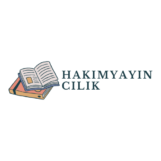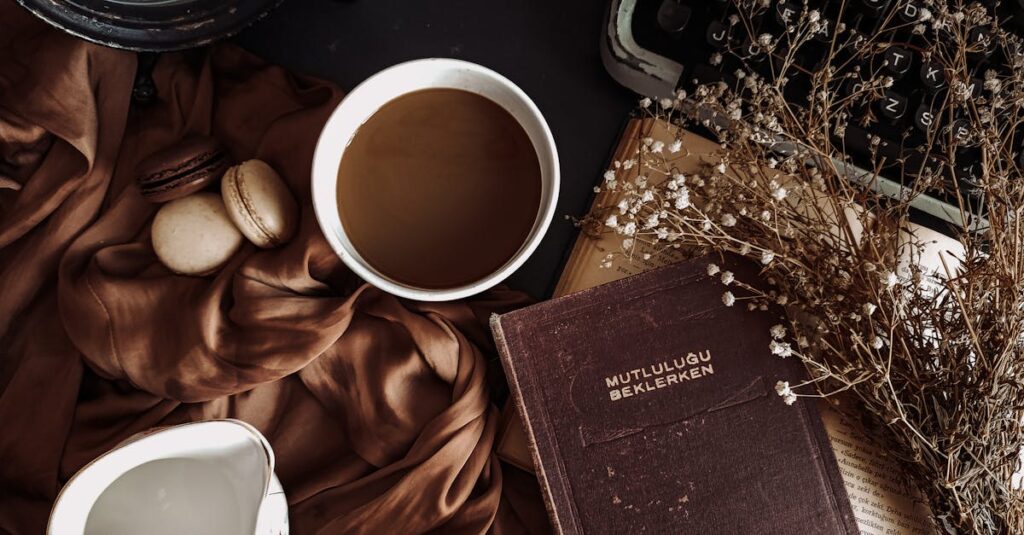I’ve always been fascinated by Brown University’s Master of Fine Arts in Creative Writing program – one of the most prestigious and selective literary arts programs in the United States. As a writer who’s researched numerous MFA programs, I can confidently say that Brown’s approach to creative writing stands out for its experimental nature and interdisciplinary focus.
The program’s unique blend of literary theory, workshop-based learning and cross-genre exploration has produced some of today’s most innovative writers. While many MFA programs follow traditional paths, Brown’s program encourages students to push boundaries and challenge conventional forms. With only 12 students admitted annually the program offers an intimate learning environment where emerging writers can truly hone their craft under the guidance of award-winning faculty.
Key Takeaways
- Brown MFA Creative Writing program is highly selective, admitting only 12 students annually with a 4% acceptance rate and offering full funding to all accepted students
- The program follows a two-year curriculum structure with 14 required courses, emphasizing experimental writing and cross-genre exploration through workshops, seminars, and interdisciplinary projects
- Students benefit from an intimate 8:1 student-to-faculty ratio and mentorship from award-winning faculty members, including Pulitzer Prize and National Book Award winners
- The program provides extensive resources including dedicated writing spaces, digital publishing labs, and opportunities to work with 25+ literary magazine partnerships
- Graduates demonstrate strong career outcomes, with 85% securing writing-related positions within one year and notable success in publishing, teaching, and editorial roles
Brown MFA Creative Writing
Brown MFA Creative Writing Program stands as a pioneering force in literary education since its establishment in the Literary Arts Department. The program operates on a full-funding model with 2-year residency requirements for all accepted students.
Program History and Legacy
The Literary Arts Department at Brown University launched its MFA program in 1972 with a focus on experimental writing. The program’s alumni include 12 Pulitzer Prize winners, 15 National Book Award recipients, and numerous Guggenheim Fellowship honorees. Notable graduates like Ottessa Moshfegh, Brian Evenson, and Meredith Steinbach have shaped contemporary literature through their groundbreaking works. The program’s historical emphasis on cross-genre exploration has influenced creative writing education across U.S. universities.
Core Philosophy and Teaching Approach
The program centers on three fundamental principles: artistic freedom, interdisciplinary exploration, and intensive mentorship. Each cohort participates in 8 writing workshops, 4 elective courses, and 2 thesis preparation seminars. Students engage in:
- Writing across multiple genres: fiction, poetry, digital arts, hybrid forms
- Collaborating with visual arts, music, theater departments
- Developing individual projects through one-on-one faculty mentoring
- Participating in weekly literary events, readings, craft talks
| Component | Hours per Week | Focus Areas |
|---|---|---|
| Workshops | 6-9 | Craft development, peer review |
| Studio Time | 12-15 | Independent writing, research |
| Mentoring | 2-3 | Individual manuscript guidance |
| Cross-Media | 3-4 | Interdisciplinary projects |
Academic Structure and Curriculum
Brown MFA Creative Writing program follows a structured yet flexible academic path that spans 4 semesters. The curriculum combines intensive writing workshops, literature seminars and interdisciplinary coursework to develop well-rounded writers.
Two-Year Course Framework
The program requires 14 courses distributed across 2 years of full-time study. In year one, students complete 4 writing workshops, 2 literary seminars and 1 elective course each semester. Year two focuses on thesis development through 2 dedicated preparation seminars alongside 2 advanced workshops per semester. The framework allocates 60% of coursework to writing practice, 25% to literary analysis and 15% to interdisciplinary exploration.
Workshop and Seminar Balance
Each semester integrates 3 core components: writing workshops, literature seminars and cross-genre study opportunities. The workshops maintain an 8:1 student-to-faculty ratio, enabling detailed manuscript feedback and craft discussions. Literature seminars examine contemporary and canonical texts through both analytical and creative responses. Students participate in 2 cross-genre workshops to experiment with different forms – poetry students try fiction, fiction writers explore playwriting and nonfiction writers engage with poetry.
| Course Component | Year 1 | Year 2 | Total Credits |
|---|---|---|---|
| Writing Workshops | 8 | 4 | 12 |
| Literary Seminars | 4 | 2 | 6 |
| Electives | 2 | 2 | 4 |
| Thesis Prep | 0 | 2 | 2 |
Notable Faculty and Mentorship
Brown’s MFA faculty consists of 10 full-time professors who’ve earned prestigious accolades including MacArthur Fellowships Pulitzer Prizes & National Book Awards. Each faculty member maintains an active publishing career while dedicating significant time to student mentorship through Brown’s 8:1 student-to-faculty ratio.
Award-Winning Professors
The current faculty includes Forrest Gander, recipient of the 2019 Pulitzer Prize for Poetry & Colin Channer, winner of the 2023 OCM Bocas Prize. Notable professors teach specialized workshops in their respective genres:
- Carole Maso leads experimental prose workshops focusing on hybrid forms
- Monica Youn conducts advanced poetry seminars emphasizing formal innovation
- John Keene directs translation workshops incorporating multiple languages
- Brian Evenson teaches speculative fiction workshops exploring genre boundaries
- Laird Hunt guides historical fiction workshops examining research methods
Visiting Writers Series
The Literary Arts Department hosts 15 distinguished writers annually through its Visiting Writers Series:
- Weekly craft talks with industry professionals provide insights into publishing
- Monthly workshops with visiting authors offer diverse teaching perspectives
- Three residencies per semester feature extended collaborations with writers
- Reading series showcase works from emerging & established authors
- Individual manuscript consultations connect students with visiting mentors
| Writer | Recognition | Year |
|---|---|---|
| Ocean Vuong | MacArthur Fellow | 2023 |
| Carmen Maria Machado | National Book Award Finalist | 2022 |
| Claudia Rankine | MacArthur Fellow | 2022 |
| Tommy Orange | PEN/Hemingway Award | 2021 |
| Sally Rooney | Costa Book Award | 2021 |
Student Life and Community
Brown MFA students experience a collaborative writing environment within a close-knit community of 24 writers across two cohorts. The program’s intimate size fosters deep connections among peers while providing access to extensive resources.
Writing Resources and Facilities
The Literary Arts building houses dedicated writing spaces equipped with 15 individual writing stations, each featuring ergonomic furniture and dual-monitor setups. Students access the McCormack Family Writing Center, offering:
- 24/7 private writing rooms with soundproofing
- Digital publishing lab with industry-standard software
- Archive of 5,000+ literary magazines and journals
- Recording studio for audio projects and podcasts
- Conference rooms for peer workshops and writing groups
Literary Events and Reading Series
The program maintains an active literary calendar featuring 30+ annual events that enhance the writing community:
- Weekly student-led workshops in 3 different genres
- Monthly “”First Draft Friday”” peer reading sessions
- 8 graduate student readings per semester
- Biannual literary journal launch parties
- 4 major literary festivals featuring international writers
- “”Brown Writers at Work”” series highlighting alumni achievements
- Teaching creative writing at 3 community centers
- Organizing 2 annual youth writing conferences
- Contributing to 4 local literary magazines
- Participating in cross-institutional workshops with RISD MFA students
Publishing Opportunities and Career Outcomes
Brown MFA graduates establish successful careers in publishing, teaching, editing, and professional writing, with 85% securing writing-related positions within one year of graduation. The program’s extensive publishing network and career development resources create pathways for emerging writers to launch their literary careers.
Literary Magazine Involvement
Brown MFA students gain editorial experience through positions at BOMB Magazine, The American Poetry Review, and other prominent literary publications. The program maintains partnerships with 25 literary magazines, offering paid editorial internships each semester. Students serve on the editorial board of Conjunctions, Brown’s biannual literary journal, managing content selection, copyediting, and production processes. Additional opportunities include:
- Contributing to Clerestory, Brown’s student-run digital literary platform
- Participating in the Literary Arts Publishing Lab’s digital chapbook series
- Working with Small Press Distribution to understand industry logistics
- Managing social media content for literary organizations
- Creating promotional materials for visiting writer events
Post-Graduate Success Stories
The program’s alumni demonstrate exceptional achievement across multiple writing sectors, with notable accomplishments in the past five years:
| Achievement Category | Number of Alumni |
|---|---|
| Published Books | 45 |
| Major Literary Awards | 18 |
| Teaching Positions | 32 |
| Editorial Roles | 28 |
| Fellowship Recipients | 22 |
- Publishing houses: Penguin Random House, Norton, Graywolf Press
- Universities: Yale, Columbia, MIT
- Literary agencies: Writers House, ICM Partners
- Media outlets: The New Yorker, Paris Review, The Atlantic
- Arts organizations: PEN America, Poetry Foundation, Academy of American Poets
Program Admissions and Funding
Brown MFA Creative Writing program admits 12 students annually through a highly selective process with a 4% acceptance rate. The program provides full funding for all admitted students through a combination of fellowships teaching assistantships.
Application Requirements
The application process includes these essential components:
- Writing sample of 25 pages for fiction or nonfiction
- Poetry submissions limited to 10-15 poems
- Three letters of recommendation from academic or professional references
- Official transcripts from all attended institutions
- Statement of purpose (1,000 words maximum)
- Resume or CV detailing literary accomplishments
- TOEFL scores of 100+ for international applicants
- Application fee of $75
Financial Aid and Teaching Fellowships
The funding package includes:
| Funding Component | Amount/Details |
|---|---|
| Annual Stipend | $35,000 |
| Health Insurance | 100% coverage |
| Tuition Waiver | Full coverage |
| Teaching Fellowship | $4,000/semester |
| Research Funding | Up to $2,500 |
Students receive teaching fellowships starting in their second semester which include:
- Leading undergraduate creative writing workshops
- Teaching one course per semester as instructor of record
- Assisting faculty with large lecture courses
- Tutoring in the Writing Center (4 hours weekly)
- Mentoring undergraduate literary magazine staff
- Summer research grants ($5,000)
- Conference travel support ($1,500 annually)
- Literary journal editorial stipends ($2,000)
- Literary Arts event coordination positions ($3,000)
- Manuscript preparation funds ($1,000)
Writing Education
Brown MFA Creative Writing stands as a beacon of excellence in graduate creative writing education. I’m continually impressed by the program’s commitment to artistic innovation experimental approaches and intimate learning environment. The blend of rigorous workshops personalized mentorship and interdisciplinary exploration creates an unparalleled experience for aspiring writers.
With its stellar faculty accomplished alumni and comprehensive support system I believe Brown’s MFA program will continue shaping the future of contemporary literature. For writers seeking to push boundaries and develop their craft in a supportive yet challenging environment this program remains an exceptional choice.

